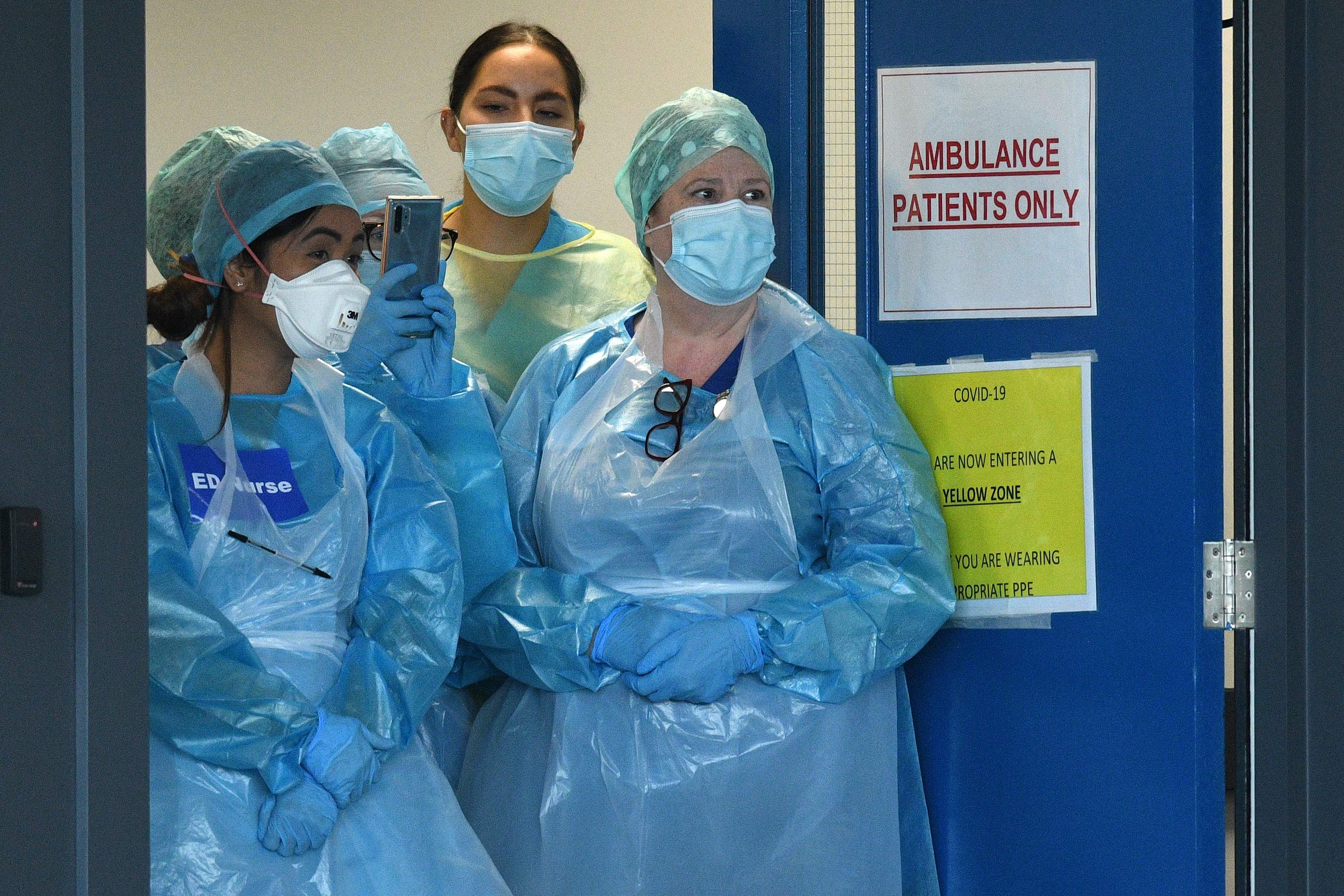NHS hospitals told to protect staff working in PPE during warm weather amid heat stress warning
Health service managers warned about demand for additional kit and impact on productivity

Your support helps us to tell the story
From reproductive rights to climate change to Big Tech, The Independent is on the ground when the story is developing. Whether it's investigating the financials of Elon Musk's pro-Trump PAC or producing our latest documentary, 'The A Word', which shines a light on the American women fighting for reproductive rights, we know how important it is to parse out the facts from the messaging.
At such a critical moment in US history, we need reporters on the ground. Your donation allows us to keep sending journalists to speak to both sides of the story.
The Independent is trusted by Americans across the entire political spectrum. And unlike many other quality news outlets, we choose not to lock Americans out of our reporting and analysis with paywalls. We believe quality journalism should be available to everyone, paid for by those who can afford it.
Your support makes all the difference.NHS hospitals have been urged to protect frontline staff wearing personal protective equipment (PPE) amid a warning about the risks of heat stress as the UK basks in a period of prolonged warm weather.
A letter from Public Health England (PHE) and the Health and Safety Executive to hospital trusts, GPs and pharmacies said doctors and nurses should be given regular breaks and recommended that a buddy system be established with people urged to watch for the signs of heat stress, which can lead to more serious heat stroke.
“Wearing personal protective equipment (PPE) in warm/hot environments increases the risk of heat stress,” the PHE memo said.
“This occurs when the body is unable to cool itself enough to maintain a healthy temperature. Heat stress can cause heat exhaustion and lead to heat stroke if the person is unable to cool down.
“Measures to control the temperature of clinical environments and enable staff to make behavioural adaptations to stay cool and well hydrated should be made.”
NHS managers should expect staff productivity to be affected, the letter said, while warning that demand for discardable PPE would grow since staff must discard their masks and gowns between each break, which they are being encouraged to take more regularly.
PPE is also expected to be changed when it becomes uncomfortable or damp, for example with sweat, putting additional demand on stock.
“Staff may require more frequent breaks and the frequency of PPE changes may increase, with a resulting increase in demand,” the letter stated.
PHE said that in 2018, around half of NHS hospital trusts reported at least one incident of overheating, and close to one in 10 (8 per cent) reported more than 50 incidents.
Heat stress has similar symptoms to heat exhaustion and can lead to heat stroke if the person is unable to cool down.
Heat exhaustion is when someone becomes very hot and starts to lose water or salt from their body. Heat stroke is a condition whereby the body is no longer able to cool itself and a person's body temperature becomes dangerously high.
Signs of heat exhaustion include a headache, dizziness and confusion, feeling sick, excessive sweating or clammy skin and fast breathing.
The UK is facing the prospect of a heatwave this weekend with temperatures set to reach nearly 30C.
High pressure from the Azores will bring warm, settled and sunny weather across much of the country, with the Midlands and the southeast expected to feel most balmy.
A heatwave is officially defined by the temperature reaching a certain threshold for at least three days in a row, with the specific threshold varying by region across the UK.
In London, the temperature must reach at least 28C for three days in a row. In the Midlands, East Anglia and the home counties, it must reach 27C. In Lincolnshire, Cheshire, Dorset and the Isle of Wight, the threshold is 26C. And in Scotland, Wales, Northern Ireland and the southwest it must reach 25C.
Join our commenting forum
Join thought-provoking conversations, follow other Independent readers and see their replies
Comments